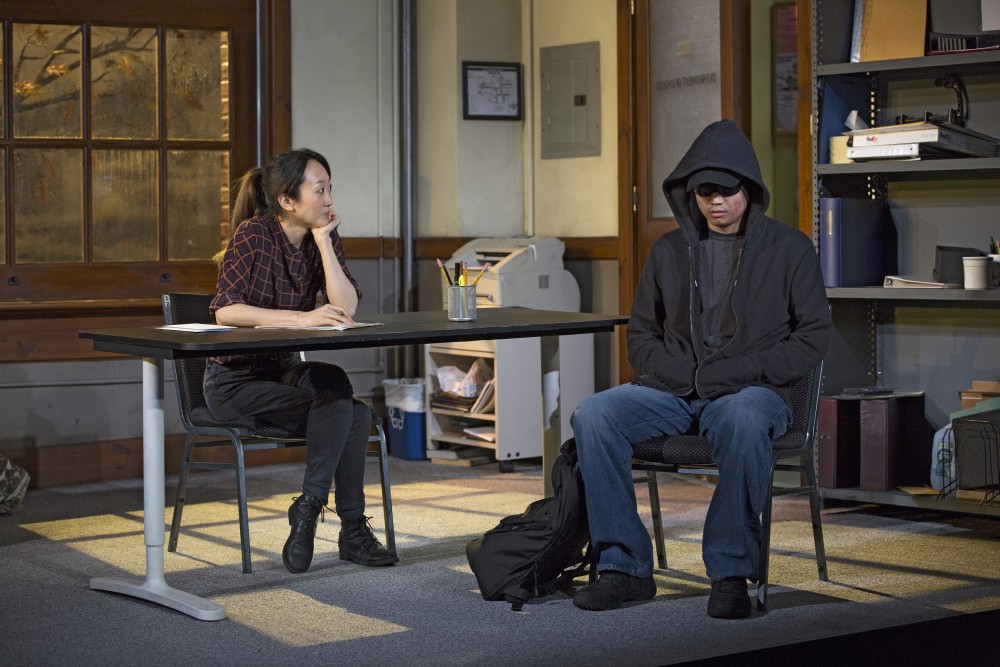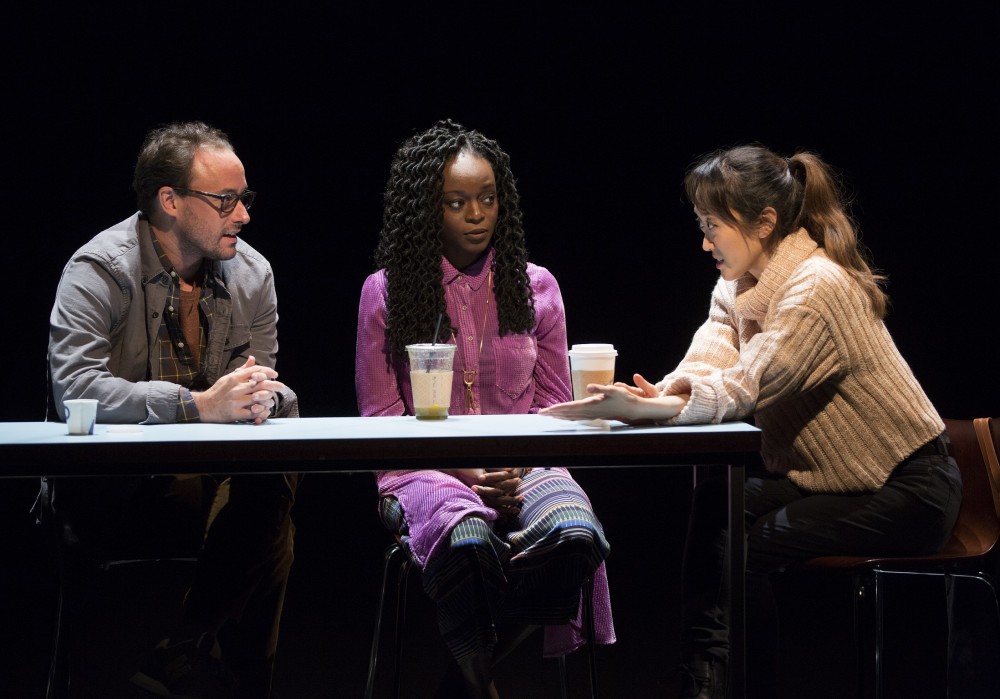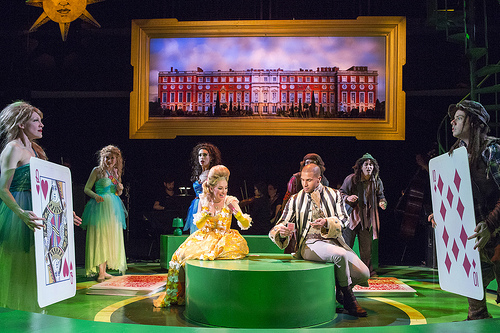By Sandi Durell
Julia Cho has written a relevant commentary on the new violence erupting in schools and colleges nationwide when a psychologically disturbed young man might eventually turn out to be the catalyst to committing murder and mayhem. When three adjunct professors meet to discuss the unsettling and odd behavior of an eighteen year old student, there is a combination of fear and dislike when writing professor David (Greg Keller) describes the abhorrent behavior of a student who doesn’t speak but only writes obscene stories. No one wants to be in his presence and since he won’t read his own papers, another student must unwillingly take on the job. The women colleagues Greg speaks with are also teachers in the English Department, listening in somewhat disbelief to Greg’s very visual descriptions. Genevieve (Adeola Role) seems interested in wanting to help but doesn’t quite know how, until Greg pushes the issue asking that Gina (Sue Jean Kim), who is Asian as is Dennis, the troubled young man, get involved since she might better understand someone from her own cultural background helping to get him into therapy and in turn, Dennis might relate best to her.
Gina makes an appointment with Dennis (broodingly played by Ki Hong Lee) at her office. As she is ready to wrap up and leave at 10 minutes to 5, a silent Dennis appears frightening and foreboding in hoodie, with dark glasses. Gina is a talker and keeps asking questions, offering up bits and pieces of her own life as an Asian until, eventually, she gets Dennis to speak. More appointments ensue. Dennis unleashes all of his anger and resentment at everyone around him, Gina pinpointing how his behavior makes people uncomfortable and pushes them away. In their talks, Dennis reveals family dynamics, along with the fact that he is most relaxed and feeling pleasure at the shooting range with his small cache of weapons (brandishing a gun in her office) and saying he needs it for protection; it’s not him who is the problem, but everyone else.
These episodes contain lots of silence, more than pregnant pauses, that are off-putting and distracting which, in fact, director Neel Keller obviously didn’t count on.
The scenes change to reveal a possible wish in a dream sequence when suddenly Dennis points his revolver at Gina and shoots her. Segue to more interaction, in real time, with greater in-depth revelations about Gina’s divorce, her life and upbringing which enables Dennis to share more of himself and his distorted views – believing himself ugly, unlikeable while exhibiting his self-loathing. He is a boy who not only expresses his hatred for himself, but for society and everyone around him. Thrown into the mix are issues of race and cultural divides.
The next ‘dream sequence’ turns the tables showing Gina brandishing the weapon and shooting Dennis, Greg and then herself. It’s loud, disturbing and violent as gunfire erupts everywhere showing the reality of a demented shooter who becomes a powerful figure at the expense of the innocent.
There is a predictability as the story moves along and also some surprises.
Office Hour is a reminder of the on-going violence that plagues our society on a daily basis and the cost both to the victims and the perpetrator. It’s not limited to college campuses as evidenced by the many demented and hateful minds that have committed these violent and cowardly acts and, of course, most recently in the Baptist Church in a small town outside of San Antonio, Texas. When/how does it end?
Efficient well-designed moving sets are by Takeshi Kata, with lighting by Christopher Akerlind and original music and sound by Bray Poor. * The performance contains loud recorded gun shots, live blanks, violence, and strobe effects.
Photos: Carol Rosegg
The Public Theater 425 Lafayette St. (Astor Place) thru December 3 – run time 85 minutes

























